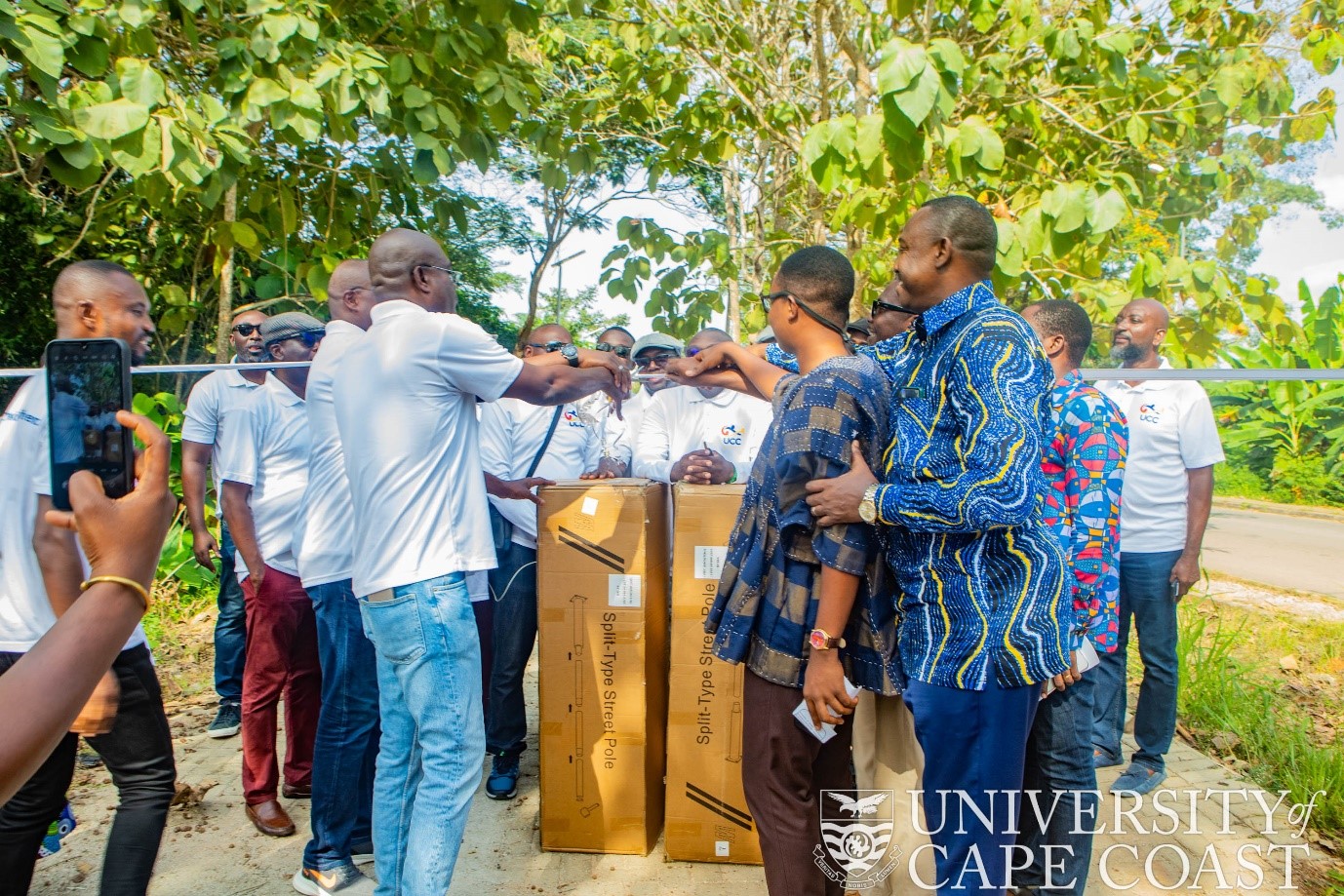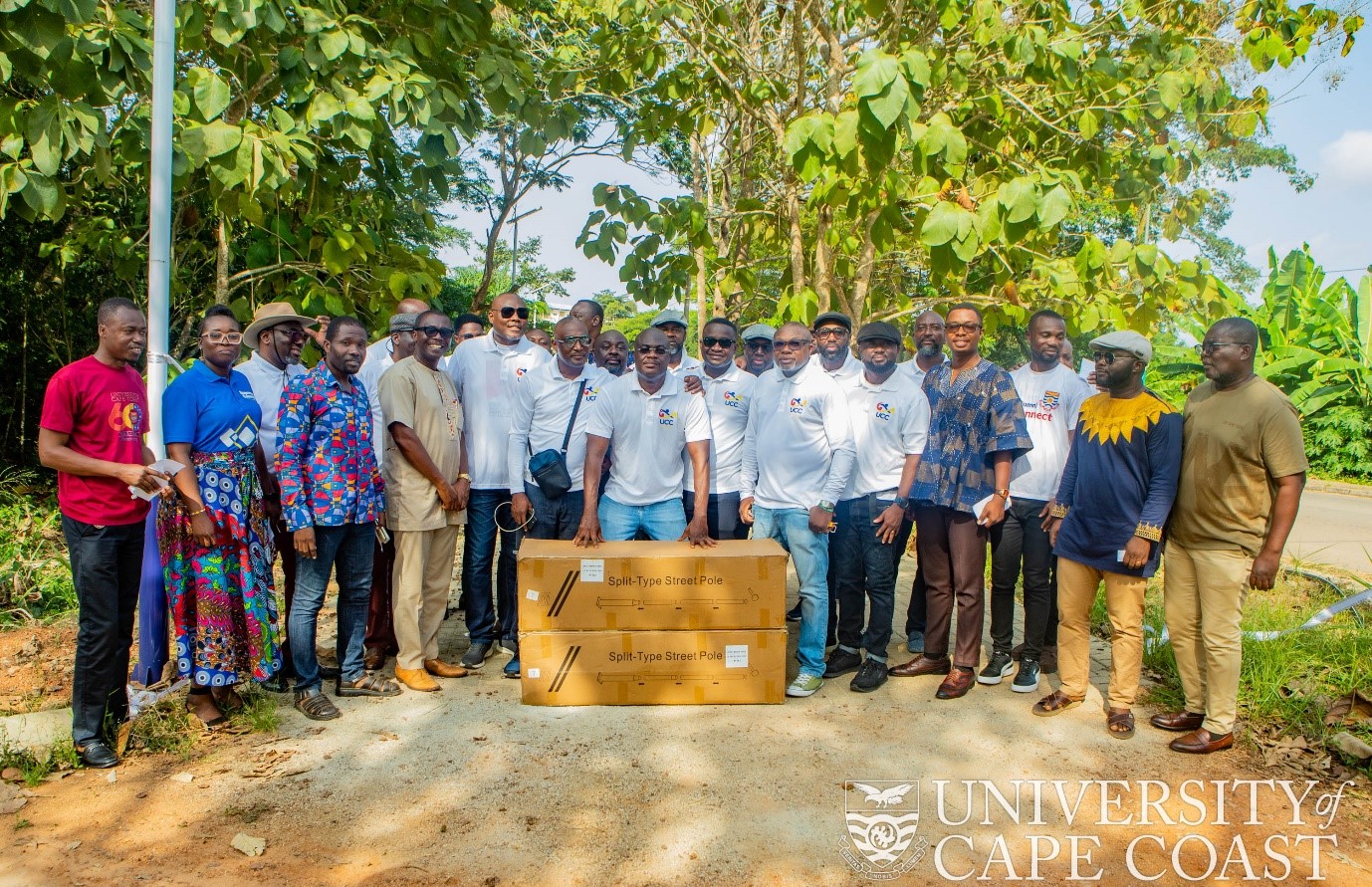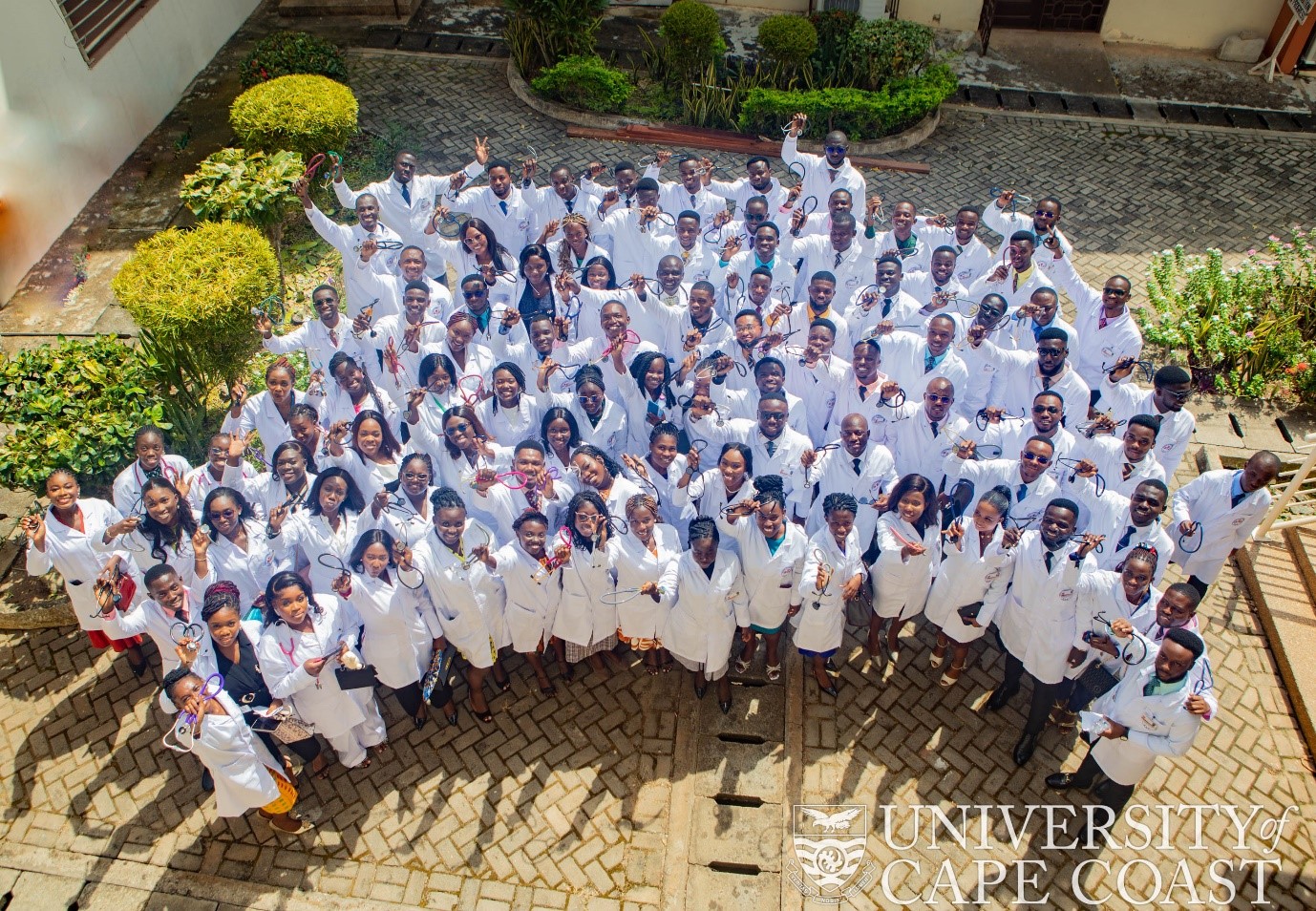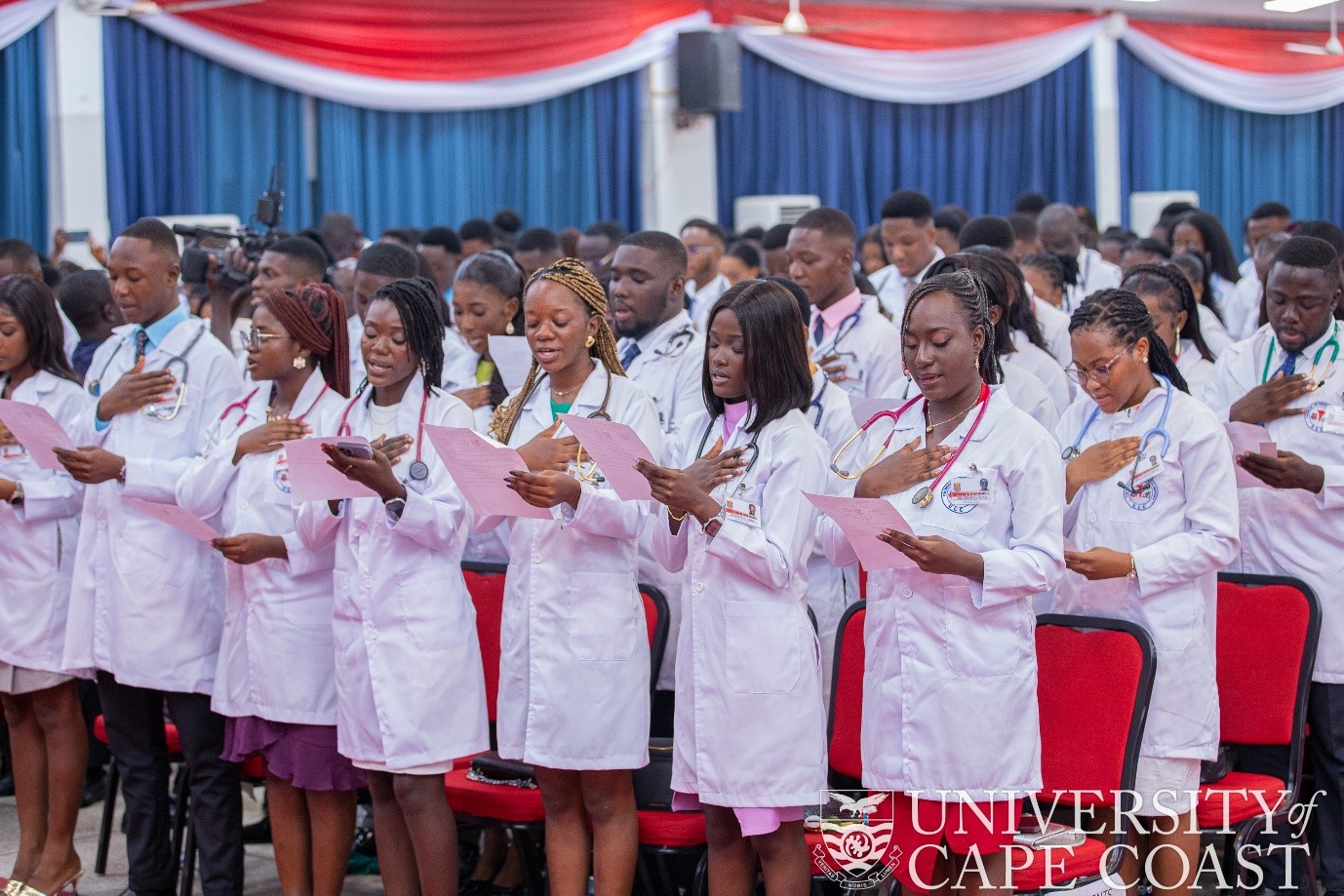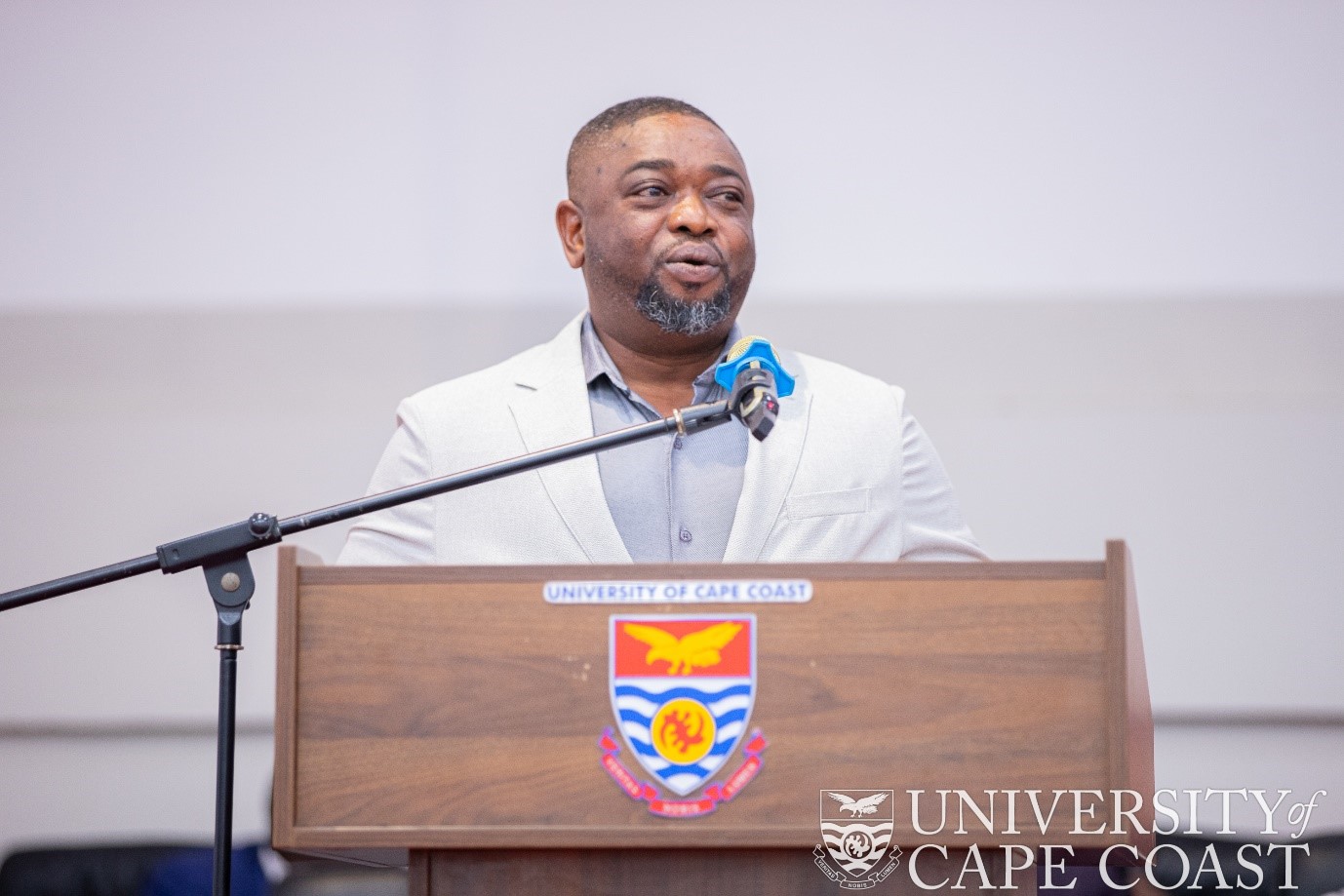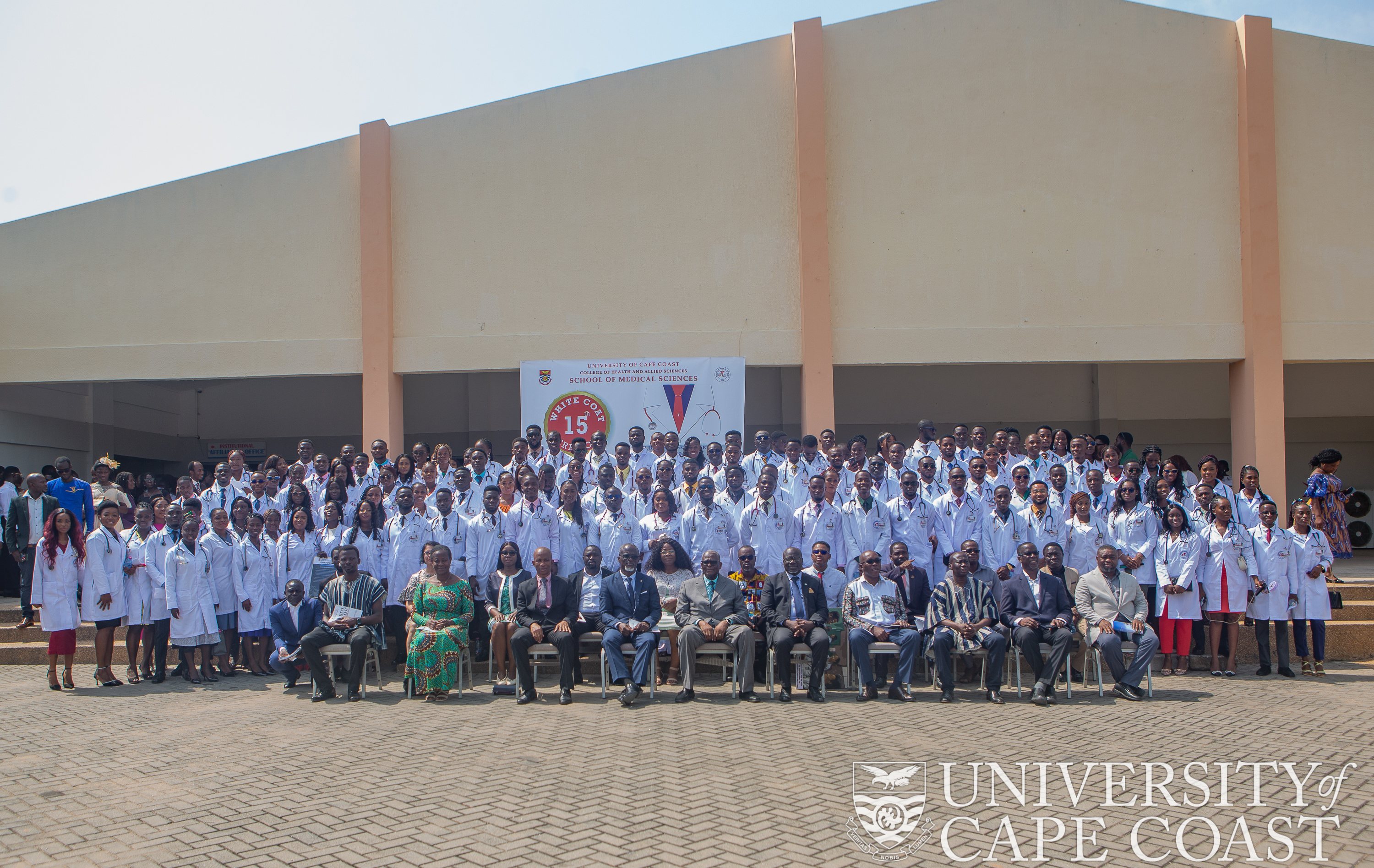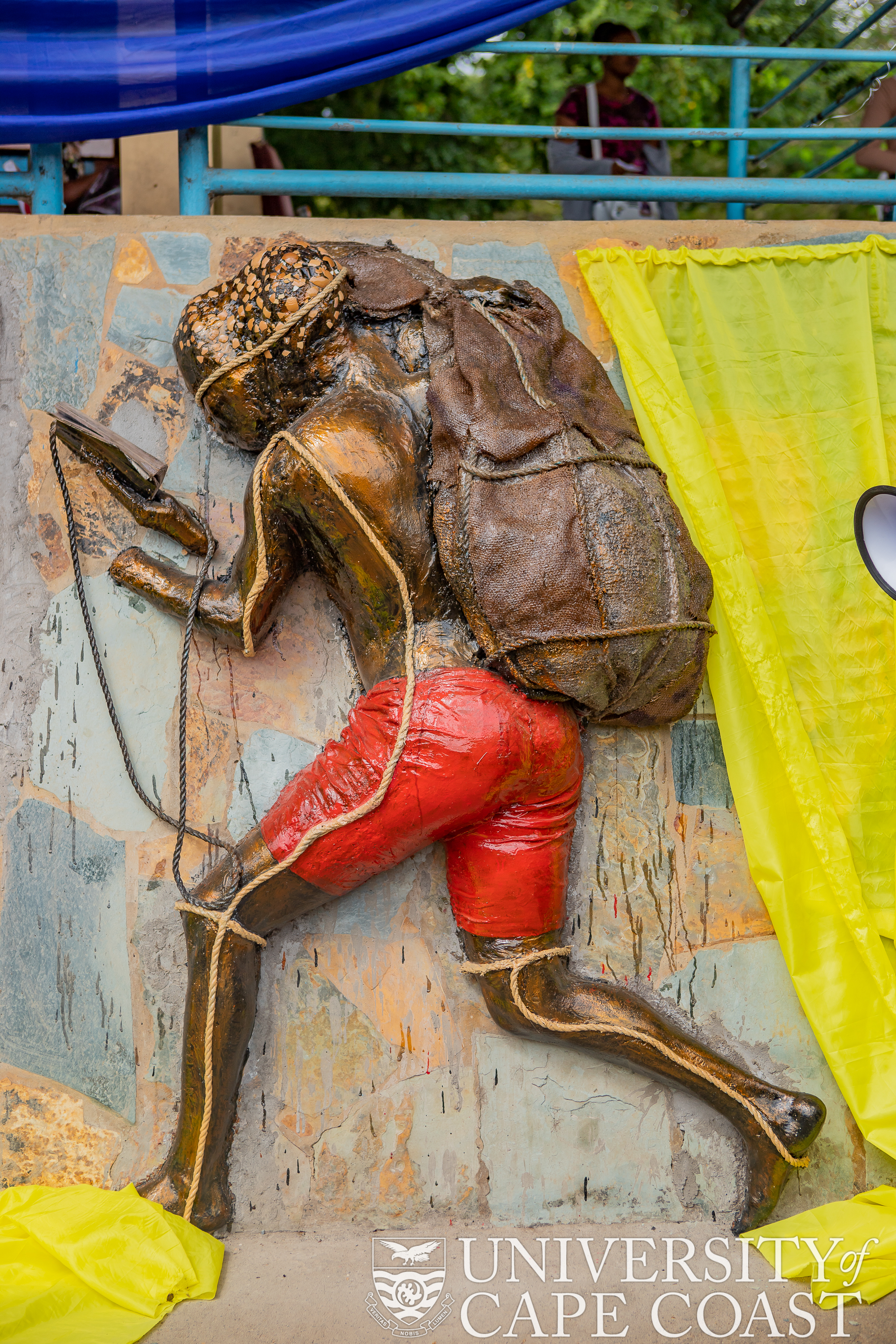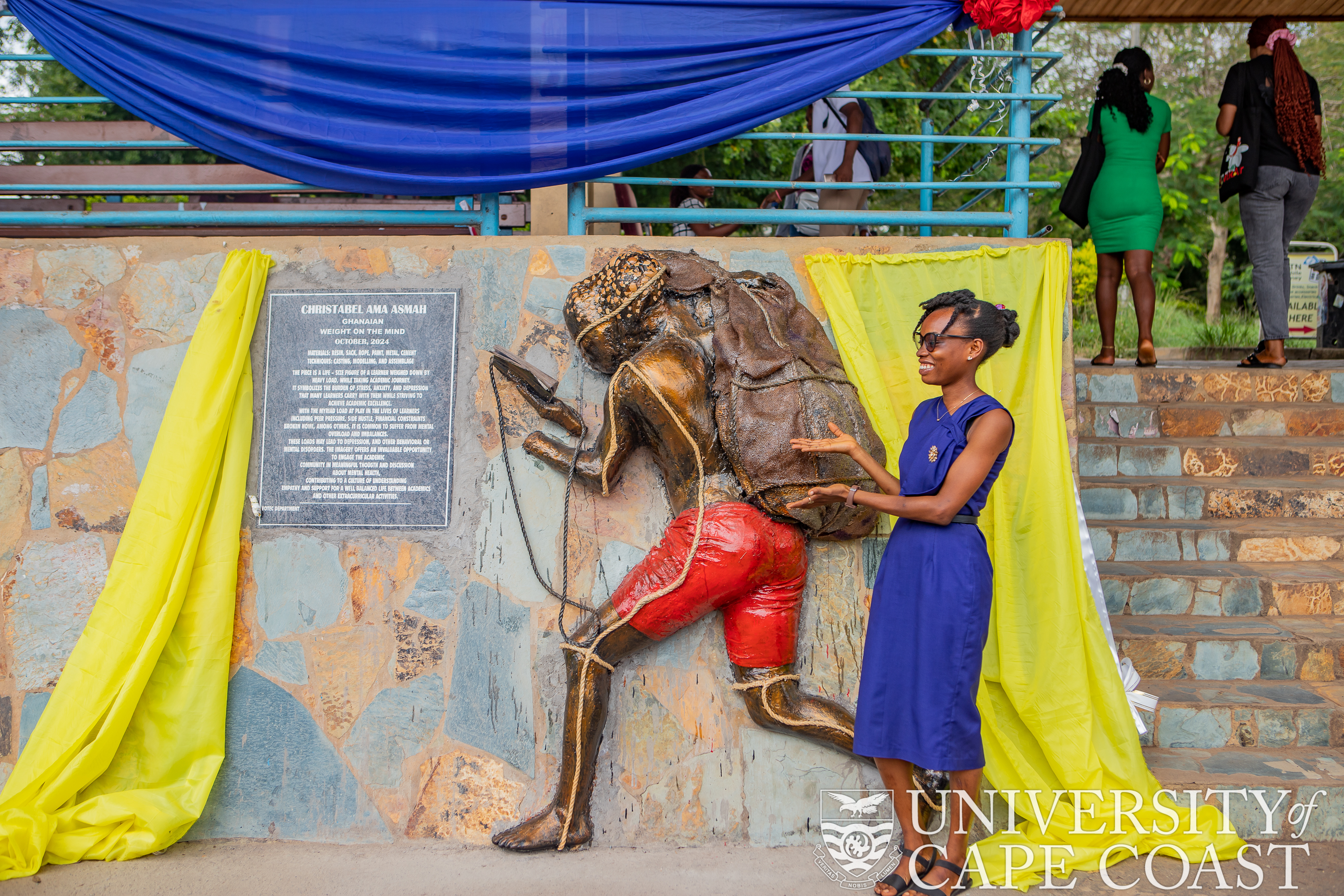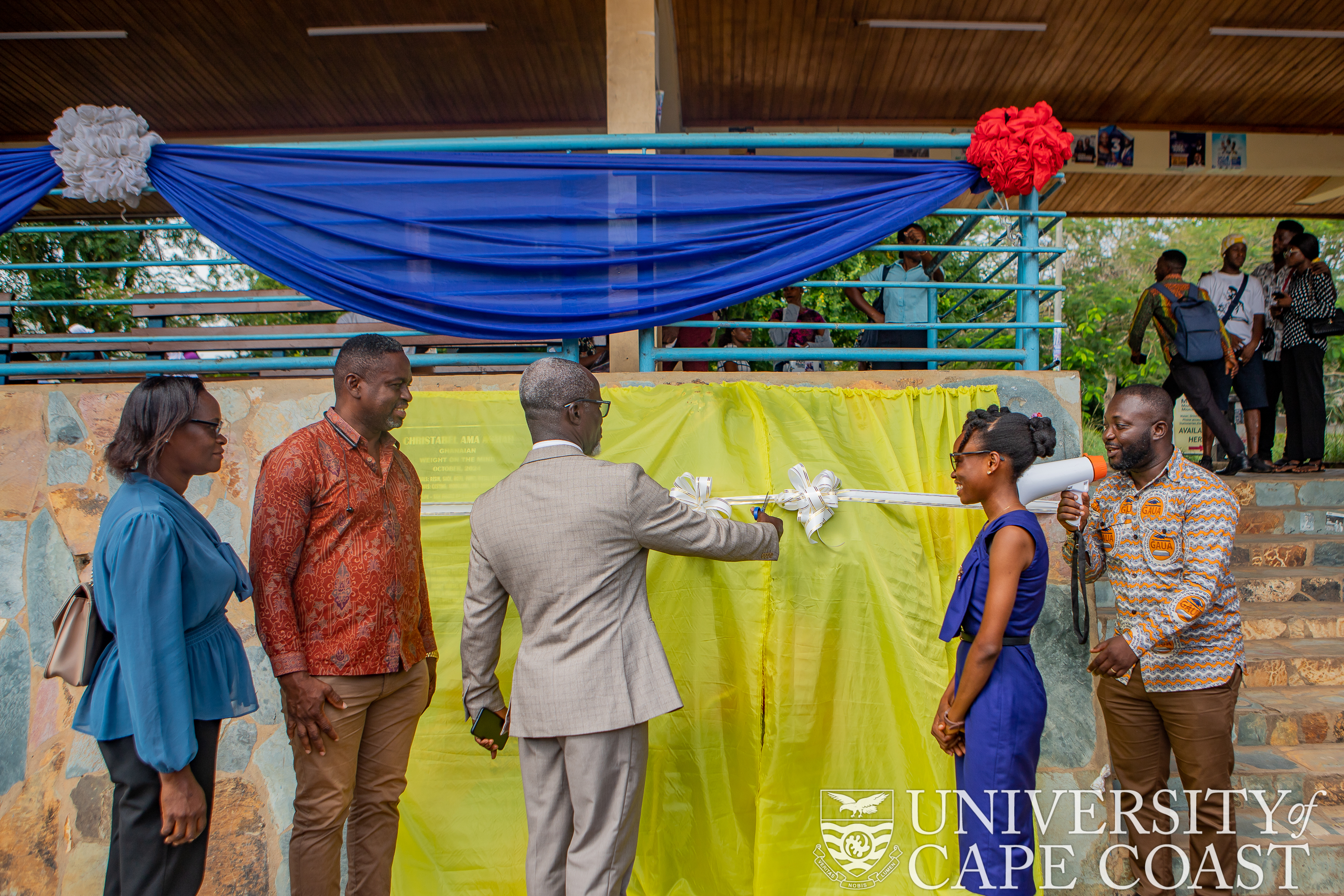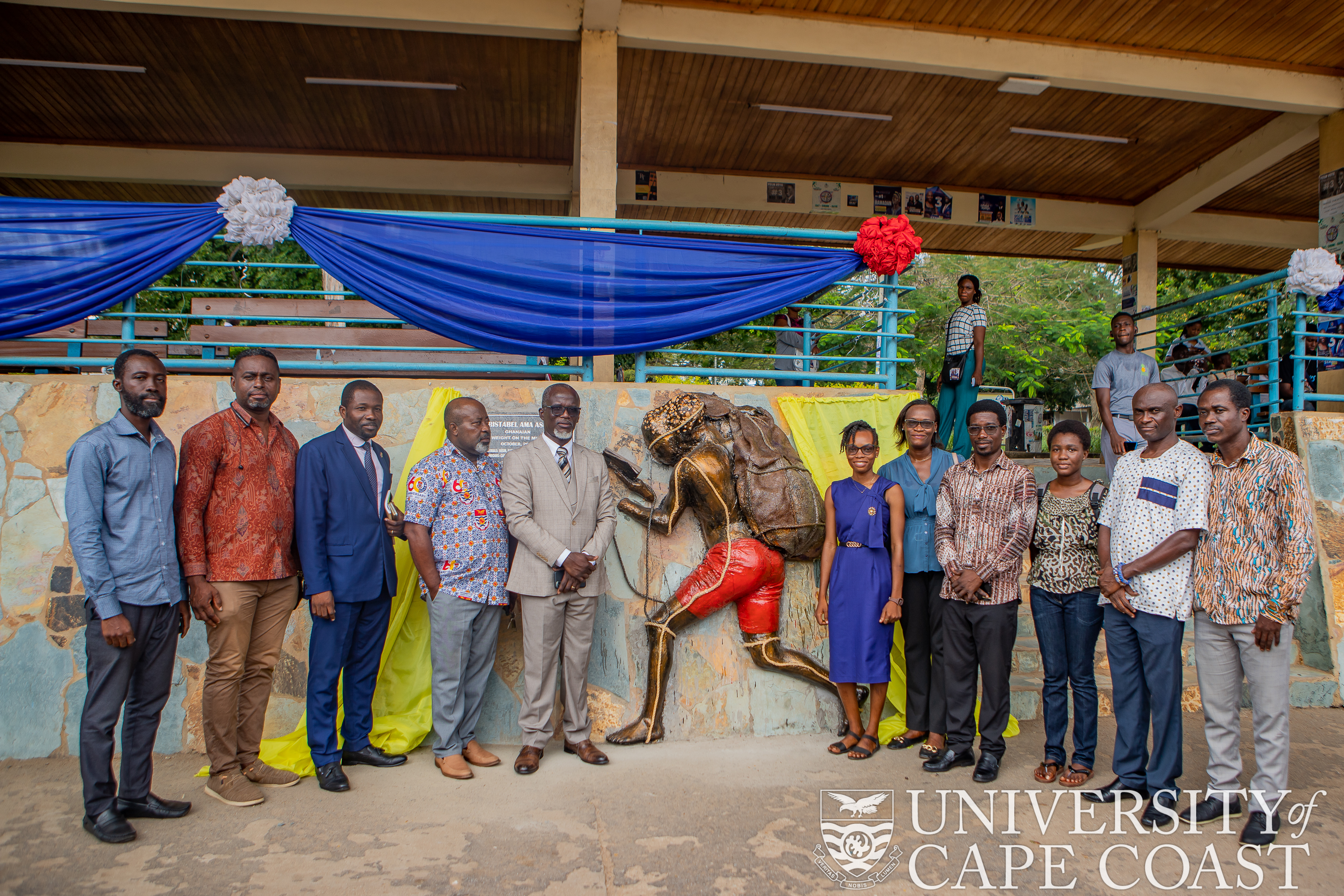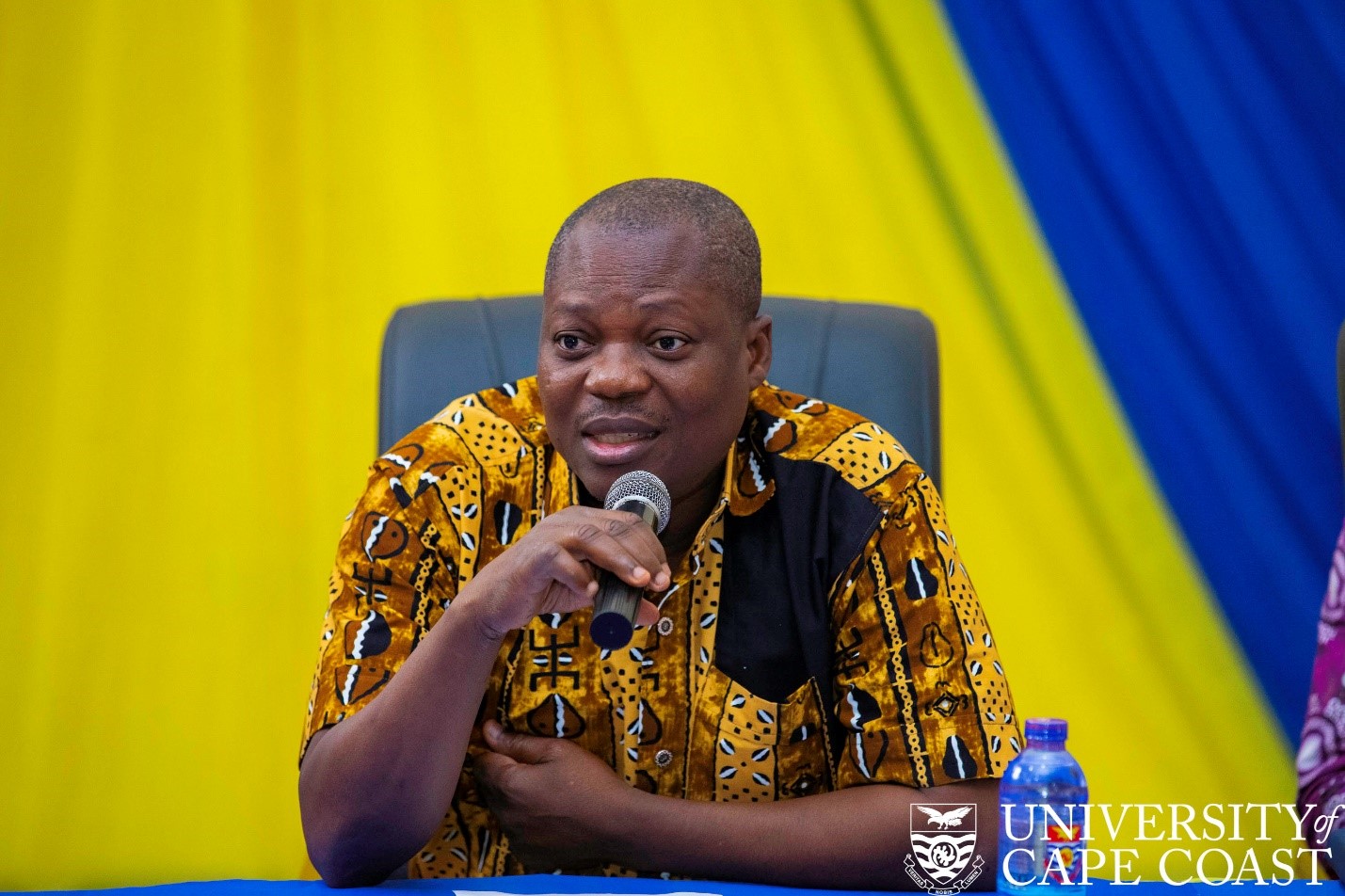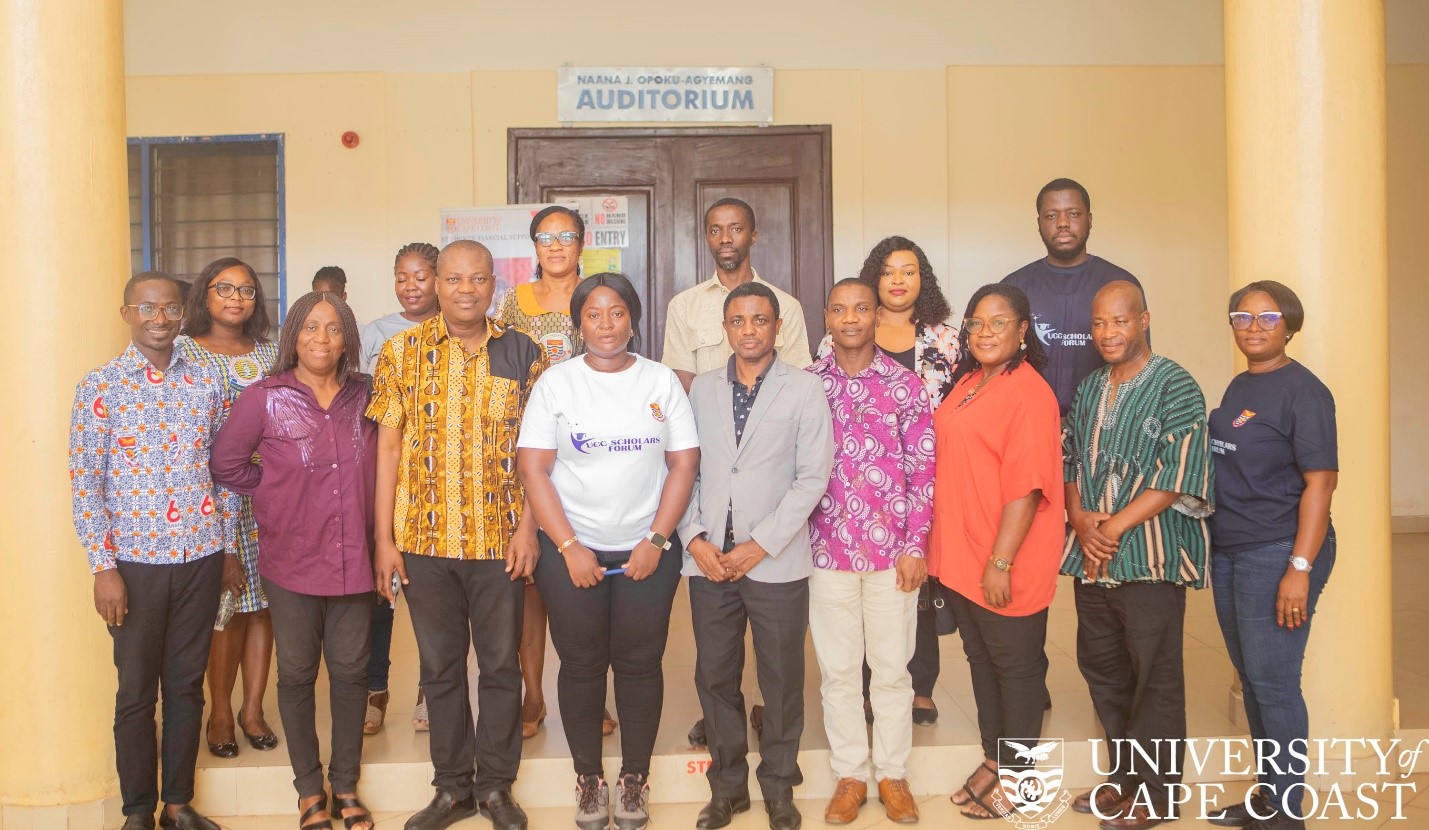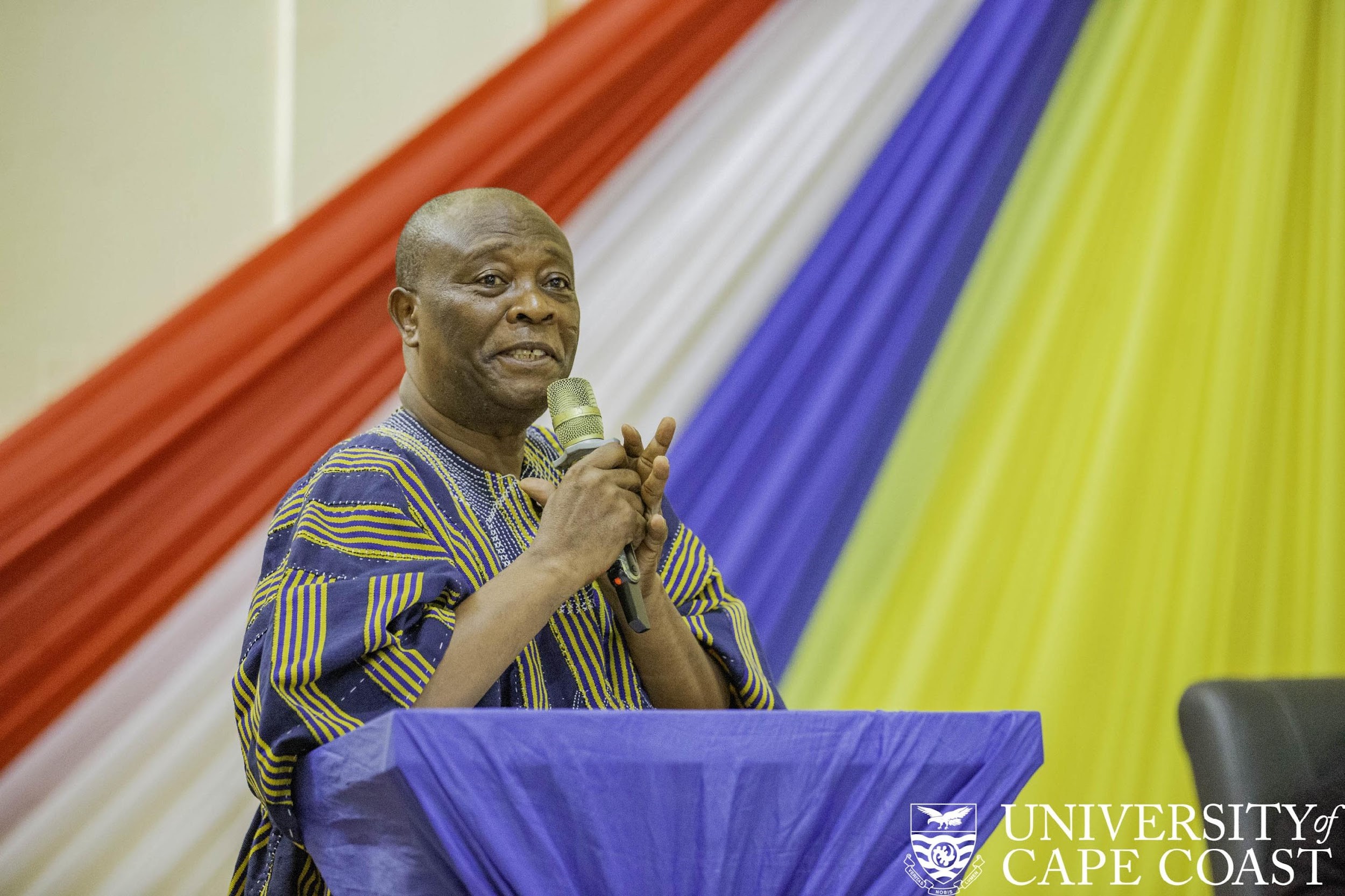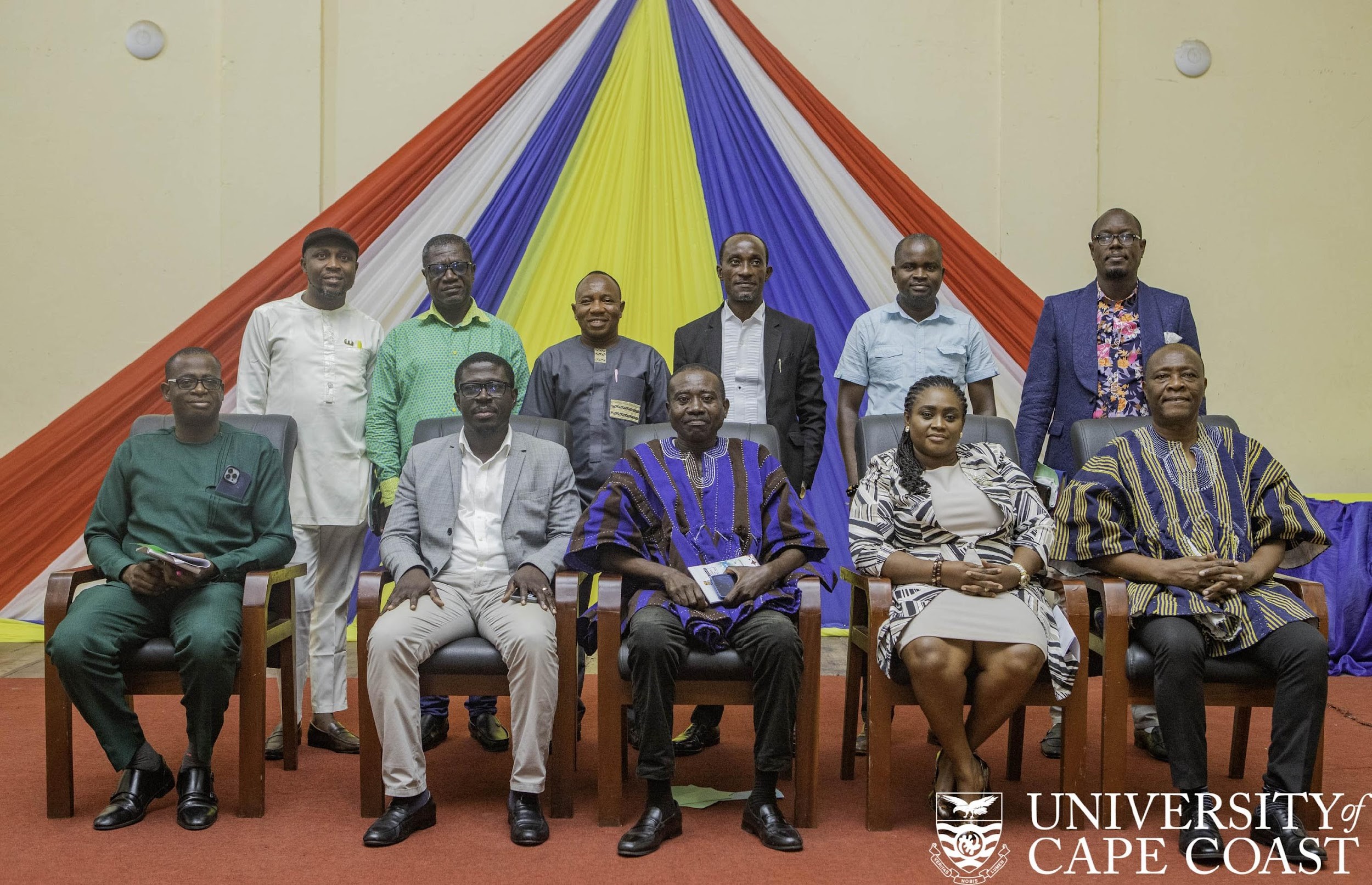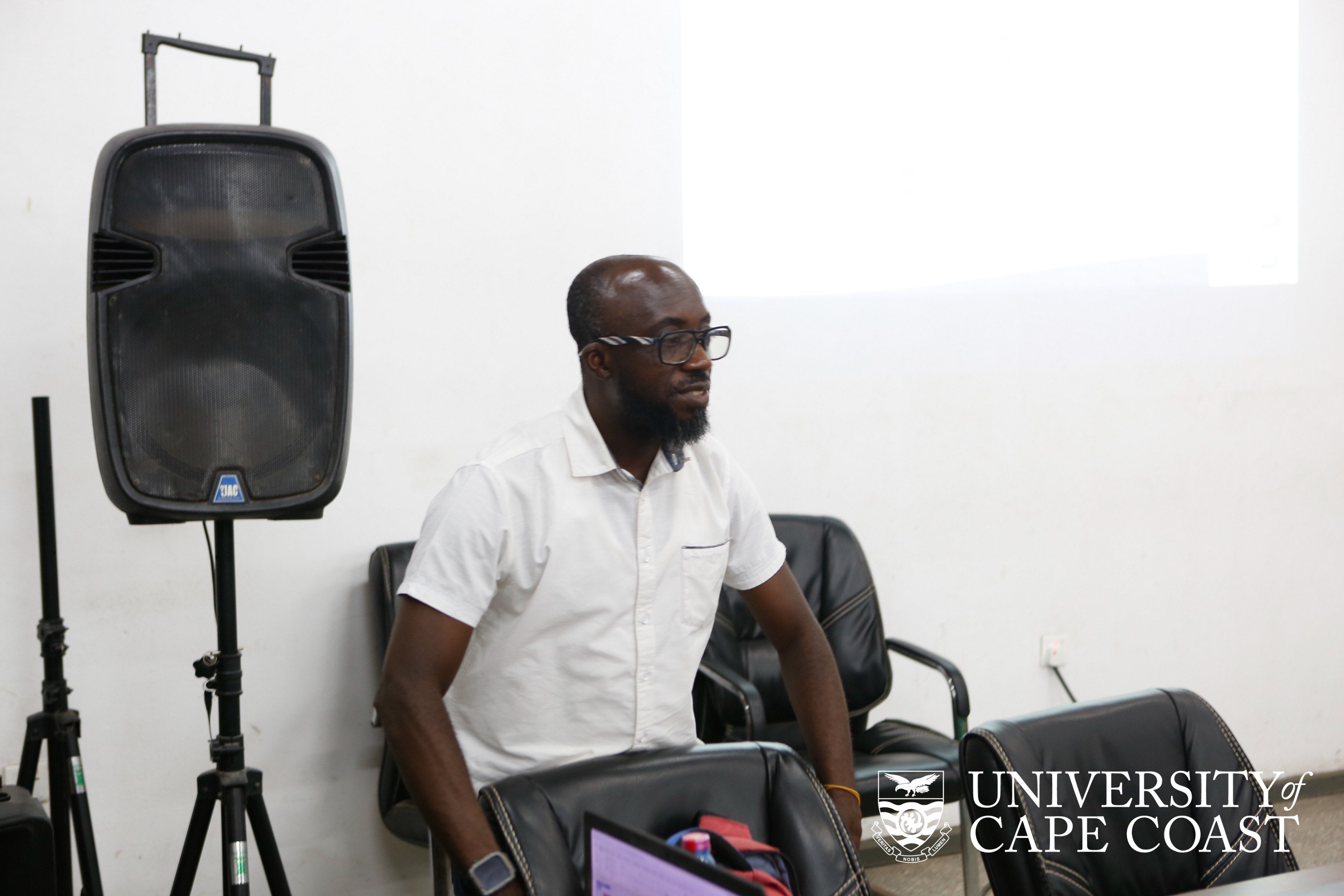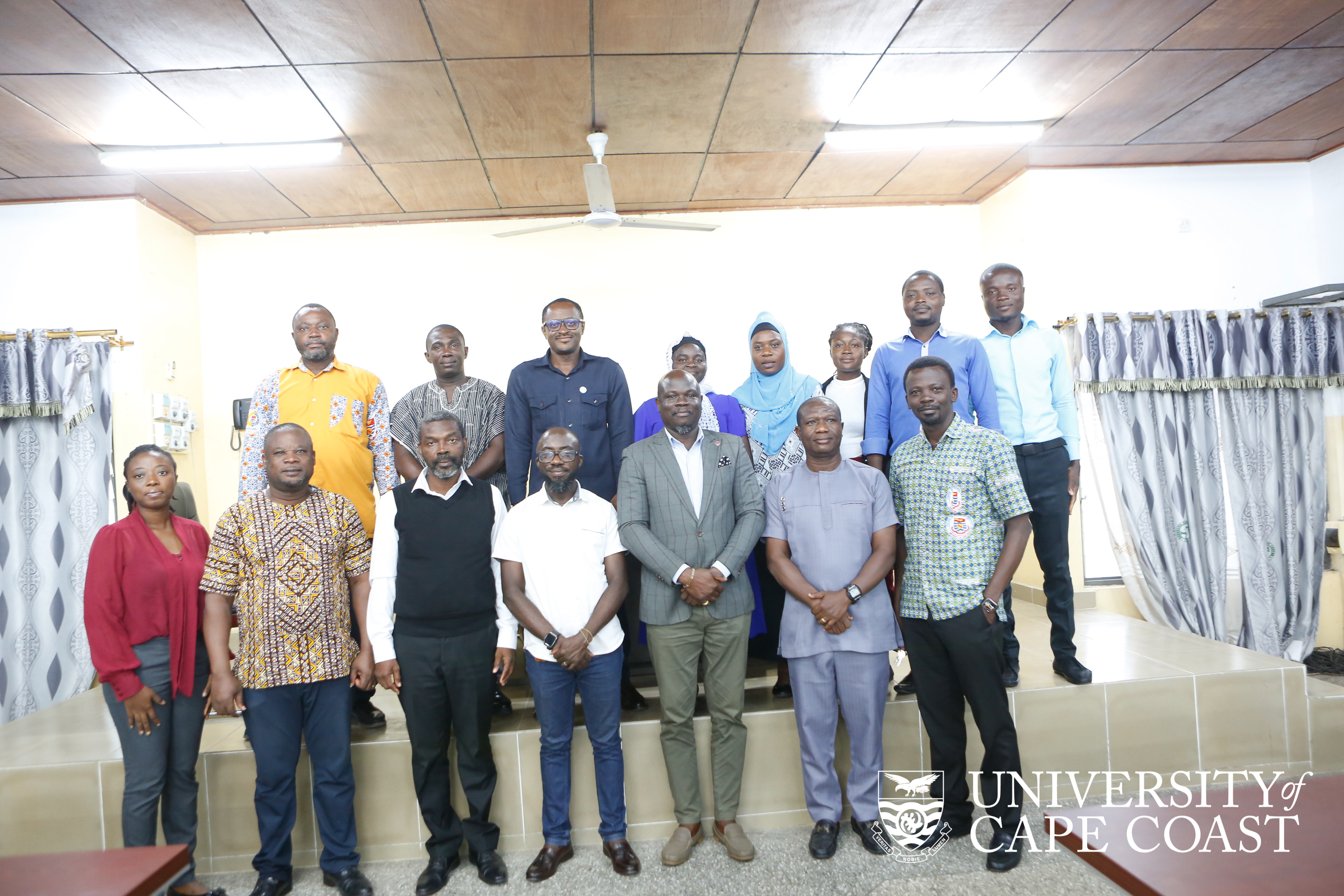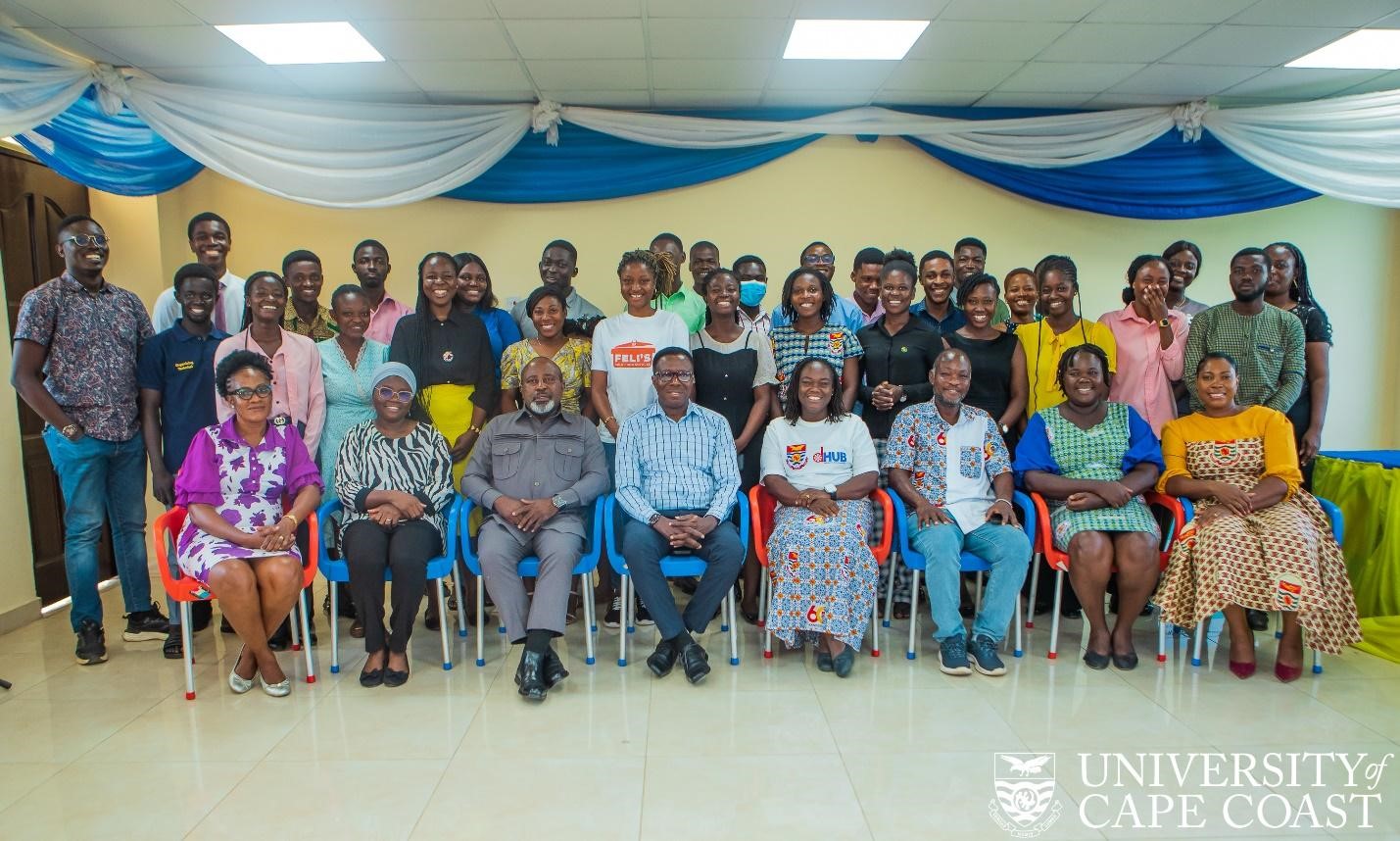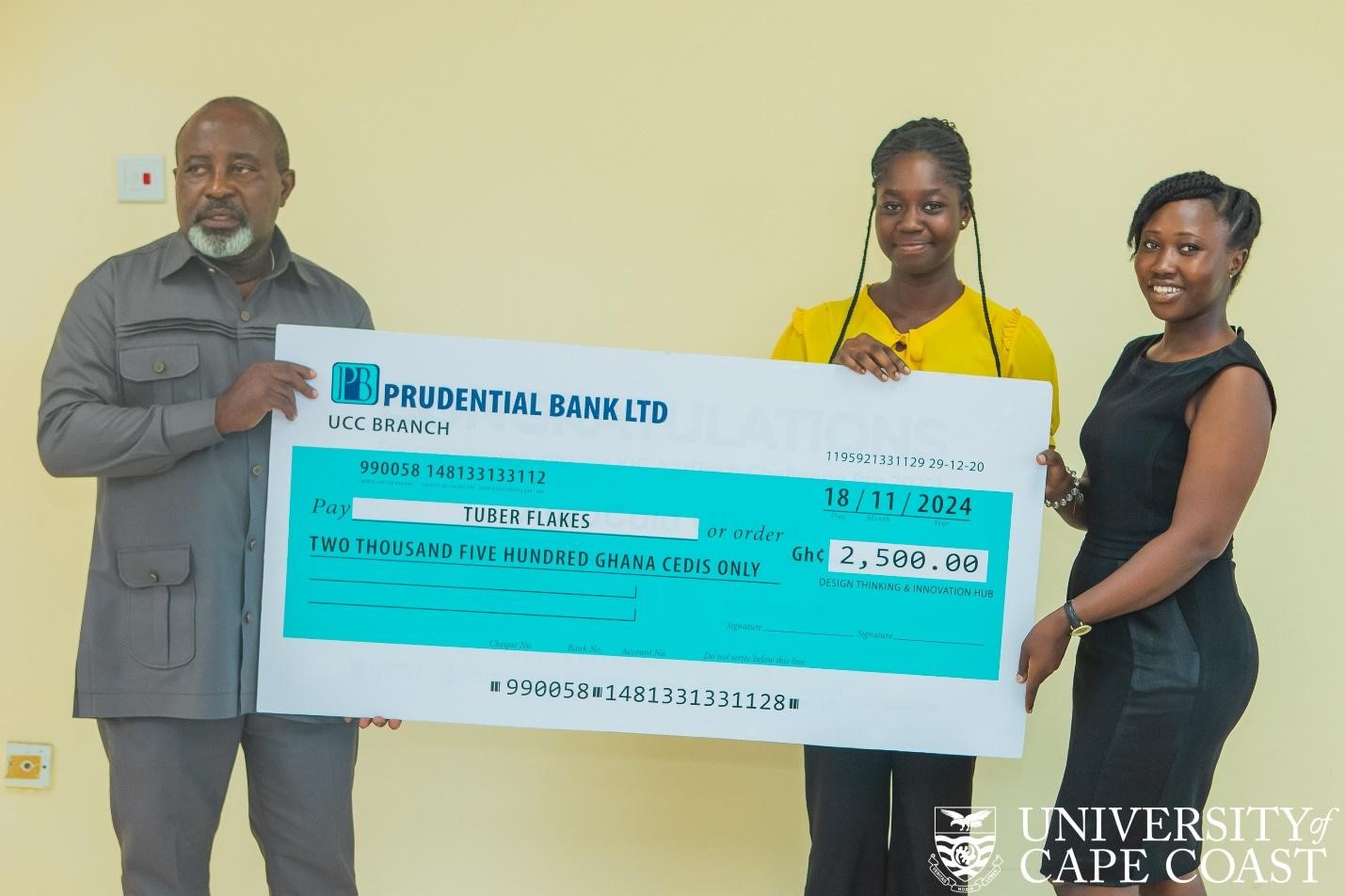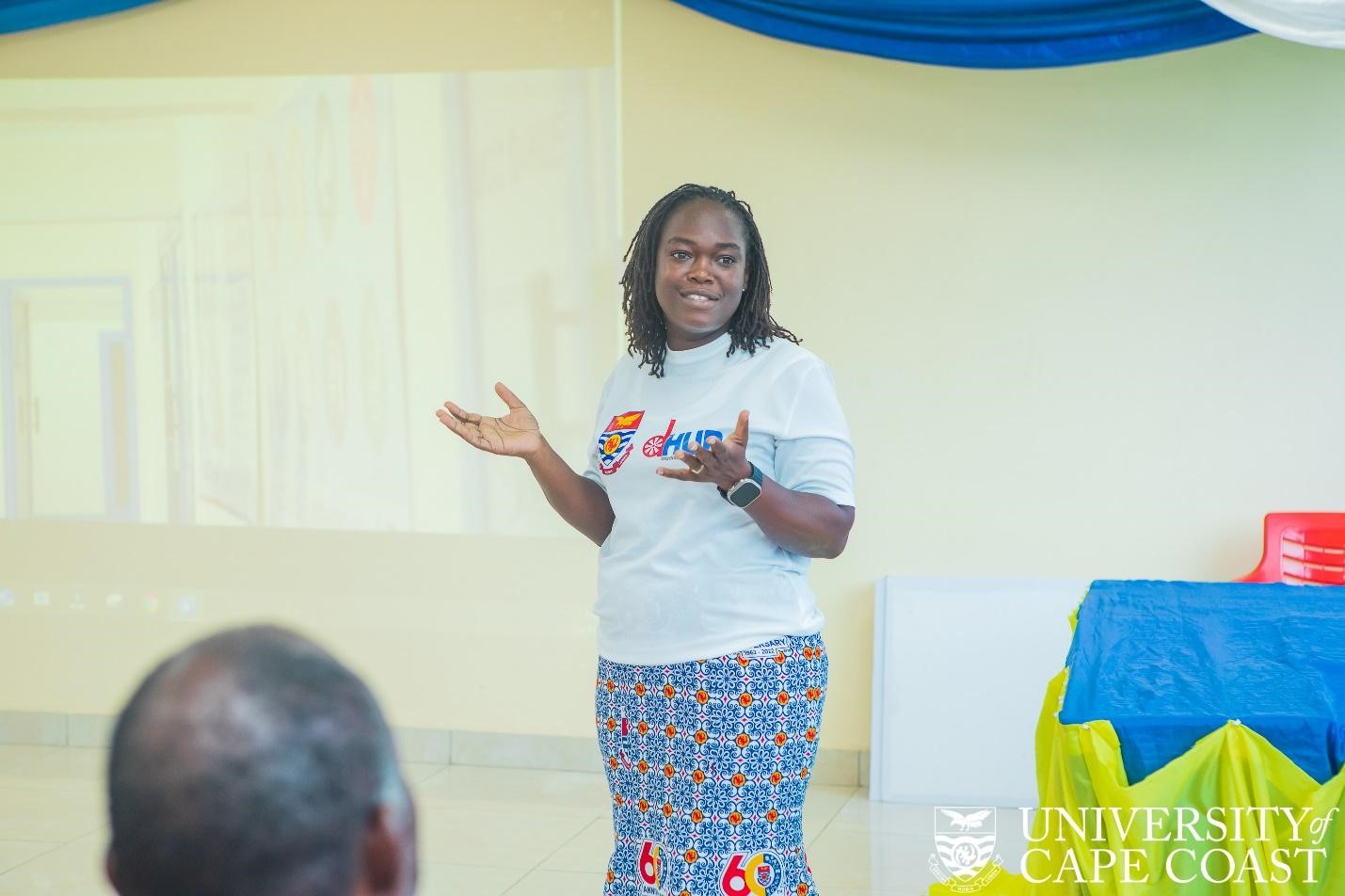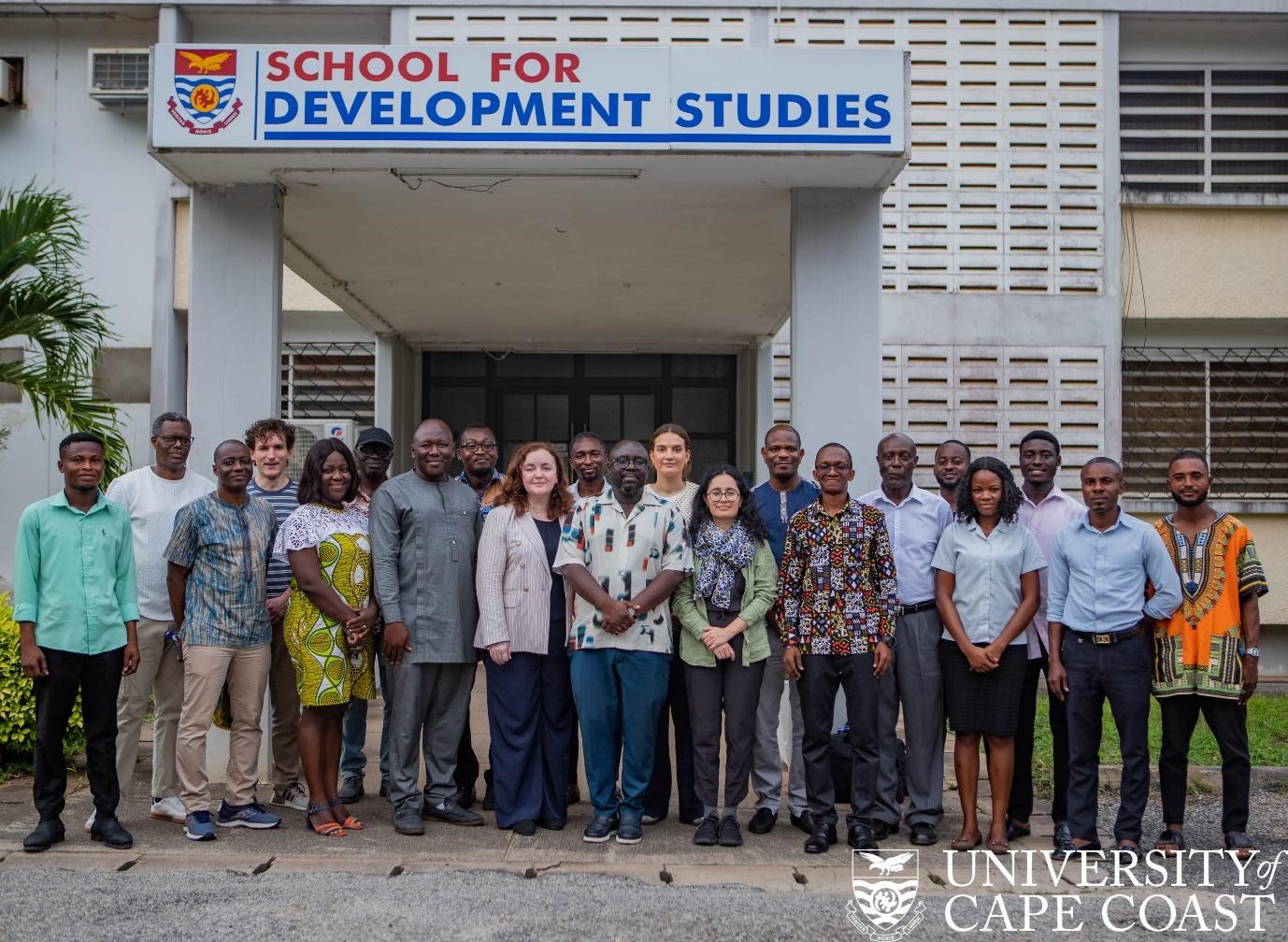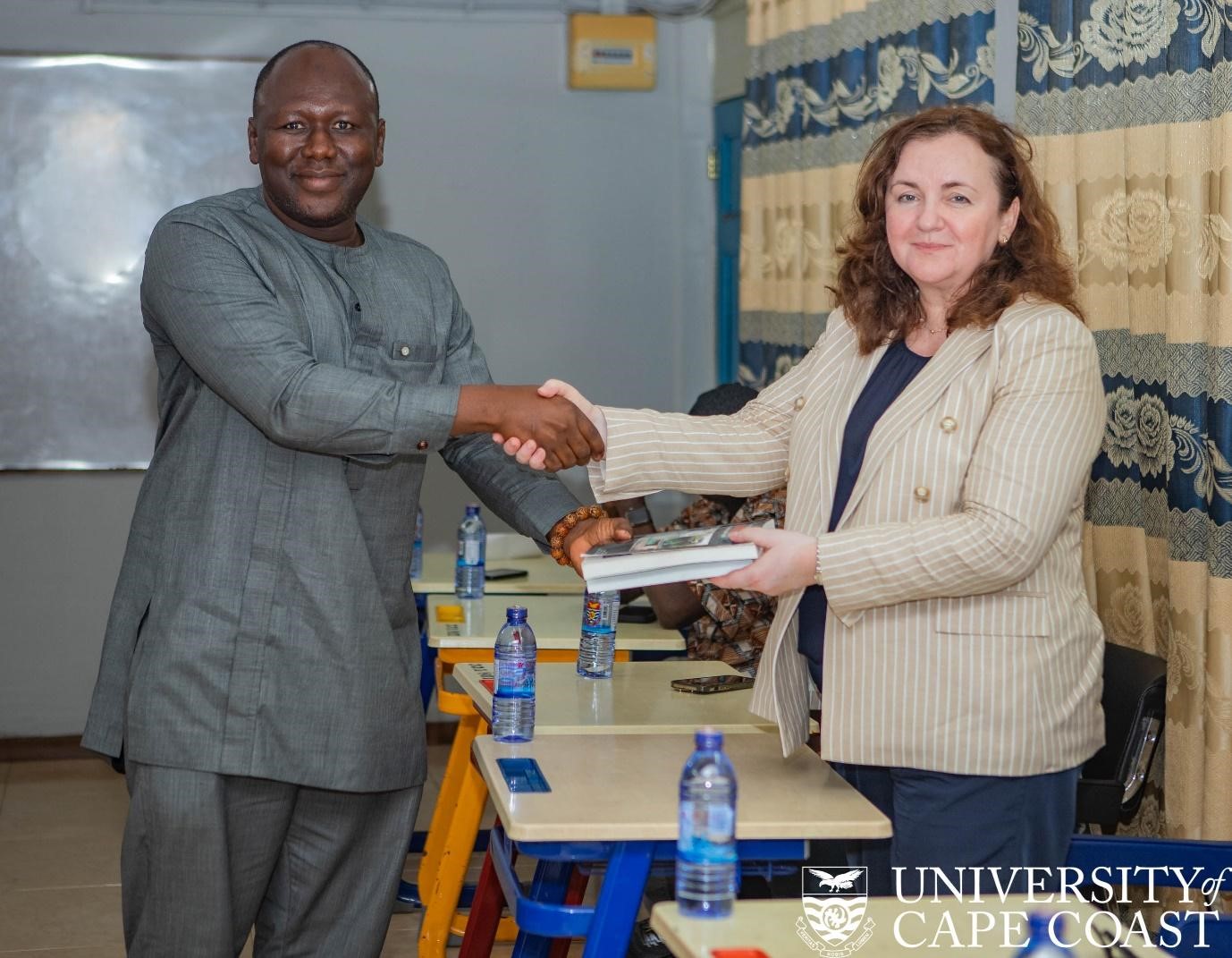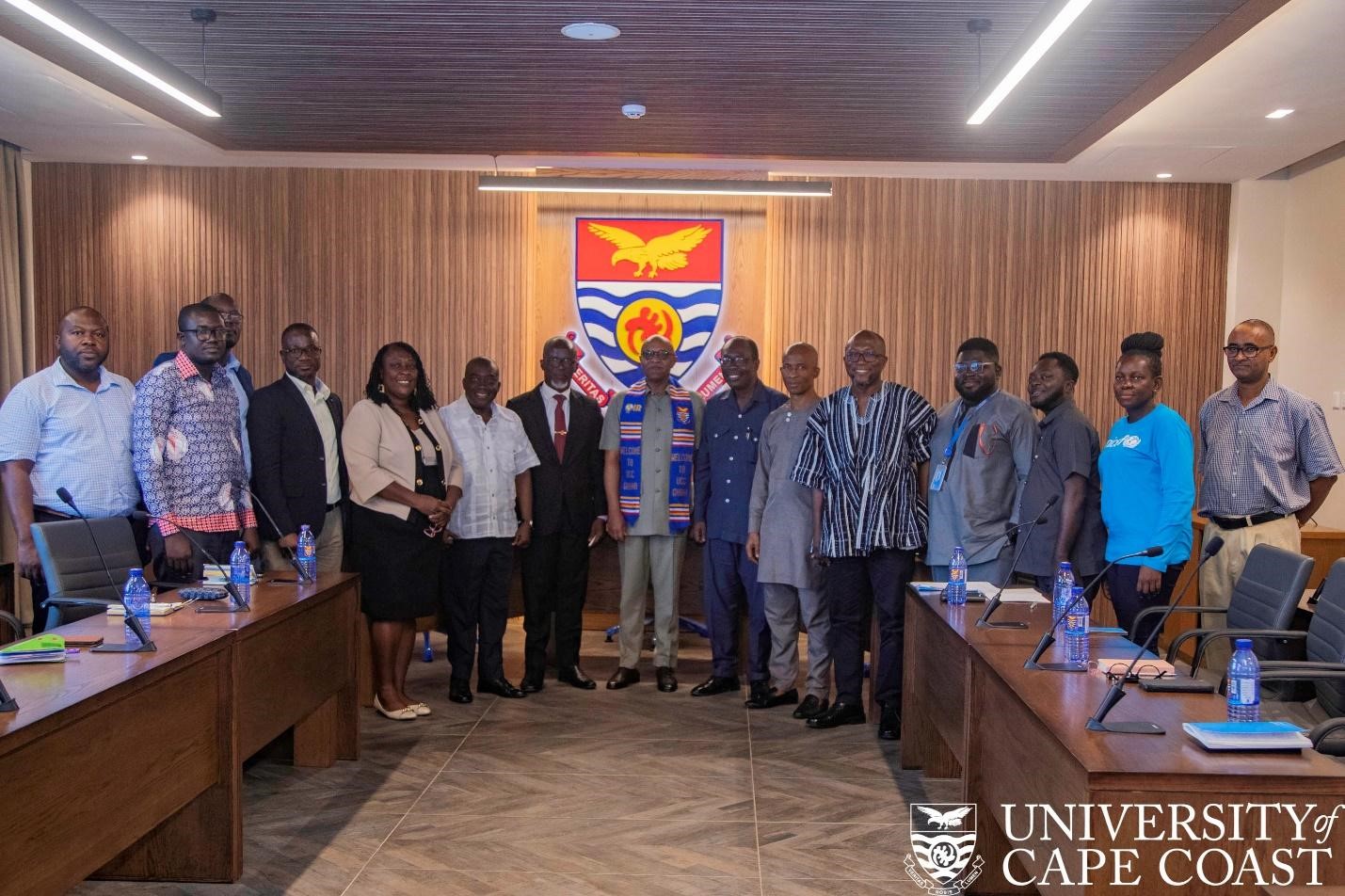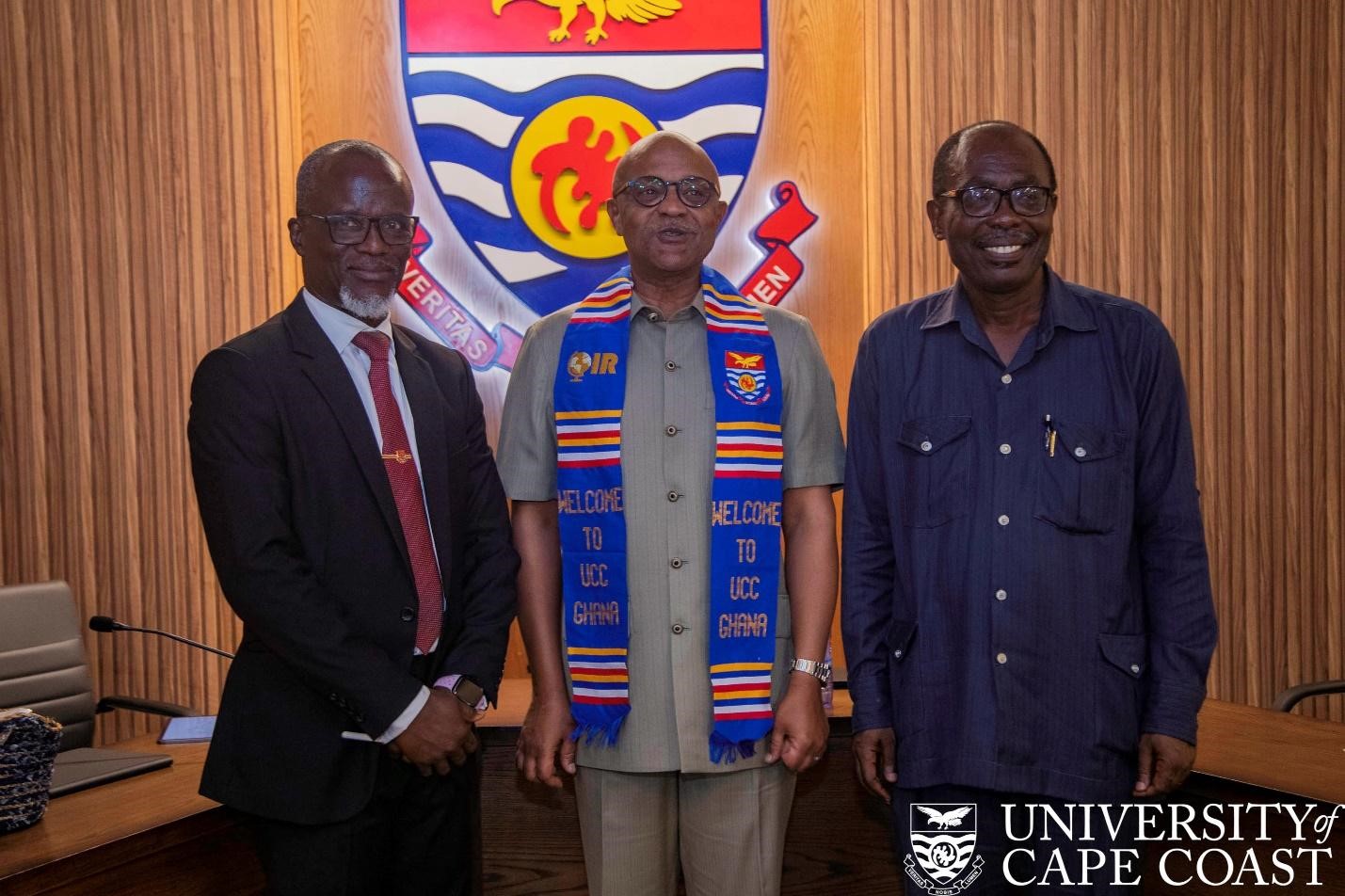A research project has been launched to revitalise taro production in Ghana.
Taro, locally known as ‘brobe, or ‘kooko’, is a traditionally underutilised but highly promising crop widely cultivated in Ghana. In 2022, its annual production was more than 1.7 million tons.
A Project, spearheaded by scientists from the School of Agriculture at the University of Cape Coast (UCC), has been launched to revive taro production and enhance the crop’s commercial value. This will ultimately contribute to addressing Ghana’s food security challenges and enhance agricultural sustainability. The team from UCC includes Prof. Paul A. Asare, Dr. Emmanuel Afutu, and Dr. Kwadwo K. Amoah - all from the Department of Crop Science.
The Project came to light after UCC and the Food and Agriculture Organization (FAO) signed a letter of Agreement (LOA). The Project aligns with the FAO’s international treaty goals of conserving and sustainably utilising plant genetic resources while ensuring fair and equitable sharing of benefits derived from their use.
It is a collaborative effort of several key partners, including the Plant Genetic Resources Research Institute of the Council for Scientific and Industrial Research (PGRRI-CSIR), which would play a pivotal role in germplasm conservation and distribution and the Crops Research Institute (CRI-CSIR).
The Project lead, Prof. Michael O. Adu, speaking at the inception meeting to launch the Project, emphasised the need for innovative agricultural solutions in the face of rising food insecurity, as well as untold poverty exacerbated by climate change, the COVID-19 pandemic and global conflicts such as the Russia-Ukraine war.
“The declining agrobiodiversity of staple food crops in Ghana has necessitated a shift towards more resilient and sustainable agricultural practices. With its zero-waste potential and adaptability to various growing conditions, taro presents a viable solution,” stated Prof. Adu, an ecophysiologist and crop improvement scientist at UCC.
Head of the Department of Crop Science-UCC and the Project lead, Prof. Michael O. Adu, speaking at the inception meeting to launch the Project
According to him, the Project would focus on capturing, preserving, and evaluating taro's genetic variation through mutagenesis to develop novel, high-yielding germplasm.
“This includes enhancing tolerance to taro leaf blight disease and drought, thereby improving yields. Additionally, bespoke food processing technologies will add value to taro corms, benefiting small-scale farmers and processors,” he continued.
Prof. Adu indicated that the project would also leverage the expertise of hordes of faculty members from other Departments within the School of Agriculture.
He pointed out that representatives from the PGRRI-CSIR, including the Director, Dr. Daniel Ashie Kotey, and Ms Fuleratu Adams, would play key roles in germplasm conservation and distribution.
Prof. Adu added that Dr. Ernest Baafi of the CRI-CSIR would facilitate molecular studies and the determination of specific genetic traits.
“The Biotechnology and Nuclear Agricultural Research Institute of the Ghana Atomic Energy Commission (BNARI-GAEC) will contribute expertise in mutation breeding and leveraging their Gamma Irradiation Facility. Drs Godwin Amenorpe and Nusrat Tsemah will assist from the BNARI-GAEC,” he told the gathering.
According to him, engagement with farmers and processors was a sine qua non for the Project's success.
He explained that: “On-farm trials, field demonstrations, and participatory research activities will ensure that the new taro varieties and products meet the needs of local communities. The Ministry of Food and Agriculture (MOFA) and the FAO will assist in disseminating information and promoting the Project’s outcomes locally and internationally.”
Group photo of participants after the interactions
He observed that the Central Regional Director of Agriculture, Dr. Peter Omega, was fully committed to the success of the Project.
Prof. Adu indicated that the Project aligned with Ghana’s national plans and policies on Plant Genetic Resources for Food and Agriculture (PGRFA).
By improving taro productivity and resilience, the project will support several Sustainable Development Goals (SDGs), including ending hunger (SDG 2), taking climate action (SDG 13), and fostering sustainable agriculture.
“We are committed to making a tangible impact on the livelihoods of small-scale farmers in Ghana,” Prof. Adu remarked.
He noted: “Through this project, we aim to provide affordable, nutritious staples, reduce poverty, and enhance environmental sustainability.”
The Dean of the School of Agriculture, Prof. Henry De-Graft Acquah, welcomed the project partners, stating: “We are delighted to host such a revered group of experts and collaborators here at UCC. This Project embodies the spirit of innovation and cooperation that defines our School of Agriculture. We look forward to working together to improve food security and promote sustainable agriculture in Ghana.”
He noted that this ambitious initiative would position UCC and its partners to contribute significantly to Ghana’s food security, agricultural sustainability, and rural livelihoods, setting a precedent for future agricultural innovations across the continent.
The project will train PhD and MPhil students, while offering capacity-building opportunities for extension agents, scientists, farmers and Agro-processors.
Source: Documentation and Information Section-UCC
